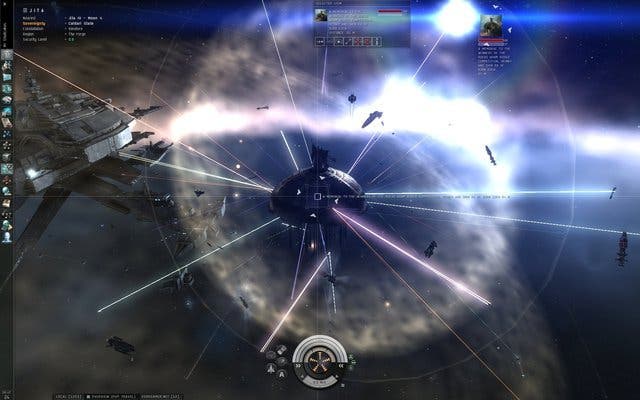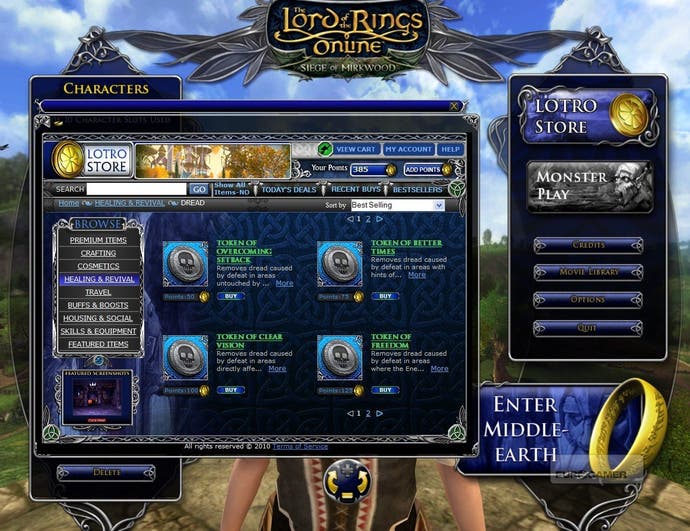Saturday Soapbox: The Scourge of Free to Play*
*A small cover charge may apply.
It was Oblivion's horse armour that set the alarm bells off for me. There was a mixture of amusement and incredulity, which quickly descended into horror as the numbers started rolling in. It was the beginning of a fragmentation from the boxed product you'd scurried away from the shops to greedily indulge yourself in, towards one where a breadcrumb trail of further expenditure lay between you and completion of an adventure.
It didn't stop there of course. Fast forward a few years, close your eyes for a moment, and picture the scene where blue-sky terms like free-to-play and - I'm so sorry for using this word - freemium, are being conjured from thin air. Chances are you're imagining a boardroom full of marketing executives, rather than a team of talented games designers toiling over your next great escape.
And while it may seem rather obvious, let's take a moment to call these terms out for what they really are - a rather patronising contempt for anyone's common sense, masked in marketing flim-flam. What they represent, in fact, is your freedom to be without - a system that takes the special personal value of gaming and holds it ever out of reach, one little micro-transaction at a time. From the perspective of gaming purity, it feels bankrupt.

There's a tangible difference between wandering around in an online world where the price of admission lies behind you, and wandering around one littered with invisible walls. When the moment arrives, and it turns out that the majestic building lying in the village just over the next horizon isn't a cathedral but a cash-point, I cease to feel like a gamer and instead become a consumer - one whose financial potential lies ready to be exploited at any moment.
While we've always been consumers at the point of sale - whether at retail or via a subscription - in these magical worlds that we like to call our second homes, a peek behind the curtain now reveals a Wizard of Oz muttering vague incantations about 'planned obsolescence' and 'commoditising communities'.
It's different for those games built from the ground up to support the free-to-play model. I have nothing invested in them and, more often than not, choose not to play them. At the extreme end of the spectrum there are titles like FarmVille, where your investment doesn't just erode over time but extends the same social benefits to your circle of friends as, say, herpes.
But if you find yourself agreeing with any of this blustering, then you're guilty of sharing a dirty little secret with me: we don't pay enough up-front for our games. It's a summer Saturday morning so I'll spare you the torture of reading through statistics from the Retail Price Index and stick to what we can all see and hear in our everyday lives - the cost of cinema tickets, travel, or any number of living expenses.

All have increased steadily in time and - with the exception of that chance-your-arm pricing of the early 360 games - game prices have more or less stuck at a retail point that might have been good enough for James Pond in 1990 but doesn't really cut the mustard 21 years later when games are so much more expensive to produce. In an industry that competes with ever-increasing investment in order to retain your attention, it's no surprise that the rules are changing.
MMO gamers in particular have had it too good for too long. The driving force behind the free-to-play revolution that's currently spreading its fingers into wider mainstream gaming comes from the MMO scene and it's not hard to see why. £8.99, the gold standard set by WOW eight years ago, has been a standard that many MMOs were foolish to aim at, leaving unprofitable titles saddled with the debt of development.
The model has become the last chance saloon for a certain section of games that really don't deserve it. Free-to-play doesn't miraculously make a bad game great. Instead it simply exchanges one currency to another, from your cash to your time. Bad games are worthy of neither.


-3-31-23-screenshot.png?width=291&height=164&fit=crop&quality=80&format=jpg&auto=webp)





